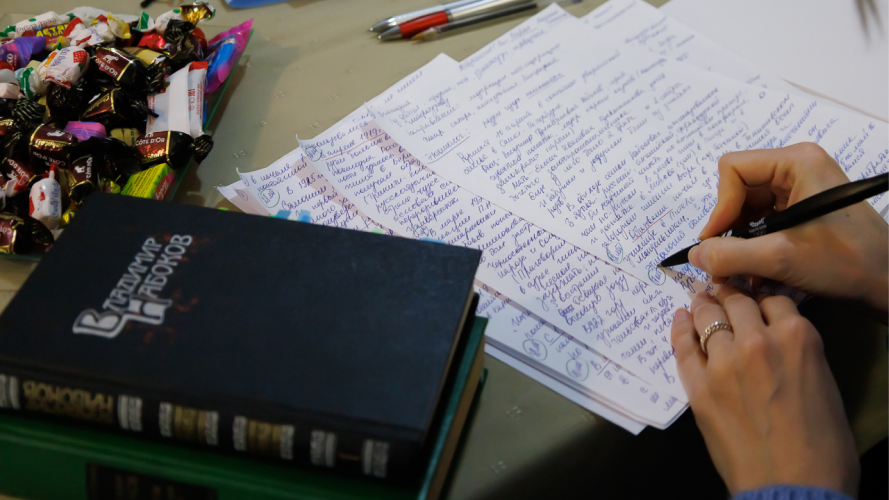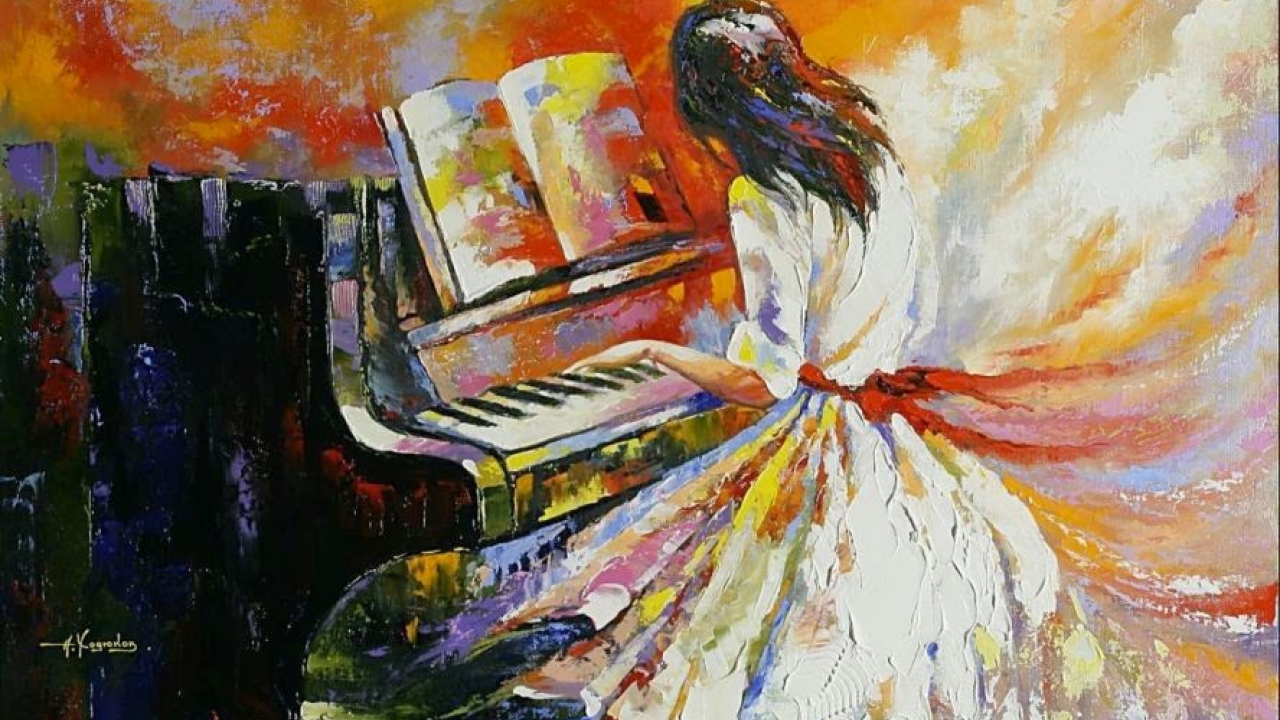On the last day of February, admirers of Vladimir Nabokov’s works gathered in the premises of our library.
The first thing that comes to mind when you hear the surname of this great writer is “Lolita.” In fact, it is one of his works. Yes, the most famous one due to its scandalous non-triviality.
So, we decided to move away from the accepted stereotypes and talk about other, no less significant works of this author.

The majority of our regular attendees and frequenters have read his very first and charming novel “Mashenka”. As indicated by the note, Nabokov dedicates this work to his wife.
In the novel, there is a parallel narration: the present overlays the past. The characters of the present are emigrants who left Russia. The voice of the past speaks through first love. And through the prism of this love, everything appears so charming and sunny.
From the very first lines, Nabokov introduces us to the world of symbols. He does so openly, through the words of his character:
“- What, exactly, is a symbol?” Ganin asked gloomily.
– Well, here, in the stop, in the stillness, in this darkness. And in anticipation. Today, at lunch, this… how to say… old writer… yes, Podtyagin… was arguing with me about the meaning of our emigrant life, our great anticipation.”
At the beginning of the book, the writer plays with words and symbols. Initially, he talks about the characters’ names. All the names are taken from literature. For example, Podtyagin has Chekhov’s first name and Pushkin’s patronymic. And his surname sounds funny and indicates his inability to solve his own problems independently. He has to rely on someone else, ask for help.
The theme of emigration runs like a red thread through all the pages of the narrative: the boarding house, like the last bastion of departed people, the passing train, shadows in the cinema.
The novel captivates with its intrigue: by fate, the main character Ganin learns that the wife of his neighbor, who has “a warm, sluggish scent of an unhealthy elderly man”, is coming to visit. And in the photograph, he recognizes Masha, his first love.

The few days left before Masha’s arrival, Ganin spends on reminiscing and preparing for the meeting. At the same time, he deals with the problems he faces in his present, such as parting with his lover, attempting to restore his decency, and helping Podtyagin with administrative issues. And all of this is described with a beautiful, vivid, and sometimes biting language.
Not only Ganin, but also Masha’s husband, the residents of the boarding house, and, of course, the reader are preparing for the meeting.
Can you imagine: a meeting after years? Have you ever wondered what it’s like to unexpectedly encounter your first love? What awaits? Disappointment? Regret? Or, on the contrary, a happy sigh: “It’s over”?
As you may have gathered, the novel sparked wide debate among readers.

Almost all participants of the literary salon not only read various works by Nabokov but also made numerous bookmarks, allowing them to insert specific quotes, and wrote down key facts from the author’s biography which, in their opinion, left their mark on his creativity.
The next novel under discussion was “The Gift”. Originally, the novel was supposed to be titled “Yes”, which echoes the anti-utopian novel “We” by Zamyatin (which we have in our library).
In a way, this is an autobiographical novel.
Due to its sharp criticism of Chernyshevsky, the novel was not fully published in its first edition.

Nabokov was nominated for the Nobel Prize multiple times, but never received it. The globally renowned “Lolita” hindered him in this regard. However, his literary rival, Ivan Bunin, became the recipient of this prestigious award.
I think you’ve already guessed: our next session is dedicated to the cycle of novels by Ivan Bunin, “Dark Alleys”. Registration is already open.
Finally, a short quiz on Vladimir Nabokov’s novel “Mashenka”.
- What was Ganin’s full name?
- Lev Glebovich
- Gleb Lvovich
- Gleb Borisovich
- Boris Lvovich
- How many people, not including the landlady, lived in the boarding house?
A) 6
B) 7
C) 8
D) 9
- What were the room numbers made of or from?
A) Drawn with a chemical pencil
B) Calendar pages
C) Cut from newspapers
D) There were no room numbers
- Where was Ganin and Masha’s first meeting place?
A) Country concert
B) She was his caregiver
C) At the lake
D) He couldn’t remember
- How old was Klara?
A) 21
B) 26
C) 30
D) 33
Answers can be sent to the library address, and we would also gladly accept your works dedicated to first love. Send them to: library@bel.rs.gov.ru
They will be published on the library’s pages. And if you’d like, we can discuss them at our literary salon.


